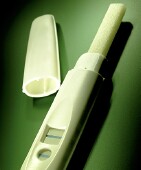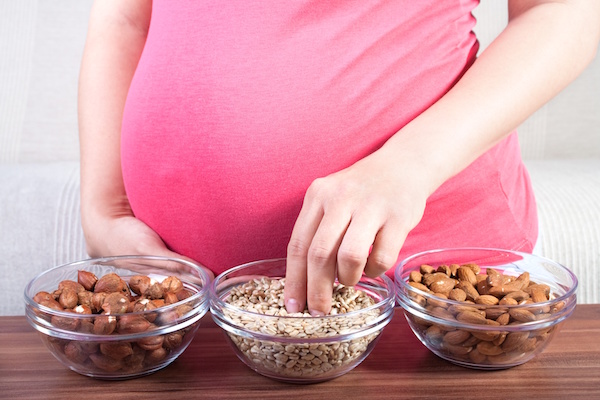
MONDAY, March 24, 2014 (HealthDay News) — Stress may increase a woman’s risk of infertility, new research suggests.
The authors of the study wanted to investigate the relationship between stress and infertility. So they looked at levels of an enzyme linked with stress in the saliva of women who were trying to get pregnant.
They also tracked the women’s ability to conceive over a 12-month period.
“Women with higher levels of the stress biomarker had a two-fold increased risk of infertility,” said study author Courtney Lynch. The enzyme they measured is called salivary alpha-amylase.
“Alpha-amylase is an enzyme that is secreted into the mouth that helps the body start to digest carbohydrates,” said Lynch, director of reproductive epidemiology at the Ohio State University College of Medicine. “It is also linked to the fight-or-flight part of the stress system.”
For the study, Lynch and her colleagues collected data from about 500 couples who were recruited from targeted counties in Texas and Michigan.
“We tried to find couples who were just starting to try to get pregnant,” Lynch said. “We sent a nursing team out to their houses who did interviews and trained the women how to use saliva-collection kits.”
The women took saliva samples twice — at the start of the study and again after they’d had their first menstrual period during the study time frame. For most, that was about a month into the study, Lynch said. Since alpha-amylase can be affected by alcohol, tobacco and caffeine consumption, the researchers asked the women to take their saliva samples right after waking up in the morning.
The researchers followed the couples for up to 12 months, collecting information on whether they’d conceived.
Of the approximately 400 couples who completed the study, 87 percent of the women became pregnant. After adjusting for age, race, income and the use of alcohol, caffeine and cigarettes, the researchers found that the women with the highest alpha-amylase levels had a 29 percent lower probability of pregnancy compared to the women who had the lowest levels of the enzyme.
The study results were published in the March 24 issue of the journal Human Reproduction.
Lynch said it’s important to be clear that the results do not suggest that stress alone is the reason a woman can’t get pregnant.
“The message is not that everyone should go enroll in yoga tomorrow,” she said. “The message is that if you’ve tried for five or six months and you aren’t getting anywhere, maybe you should look at your lifestyle and think about whether or not stress might be a problem for you. And if it is, you might want to consider a stress-management program.”
The authors said this is the first U.S. study to show a possible association between a stress indicator and how long it takes a woman to become pregnant.
Dr. Suleena Kansal Kalra is a reproductive endocrinology and infertility specialist at the University of Pennsylvania. She called the new research “a great first step — it’s presenting a way to measure [indicators] of stress.”
“Part of the challenge is that we don’t have validated [indicators] of stress hormones or validated questionnaires that measure stress, so the next step is that we really need to start validating some of these tools,” said Kalra, who was not involved with the new research. “Ultimately, we want to know how we can measure stress, and then, can we intervene?”
Exactly how stress affects fertility is not well understood, Lynch said. The study’s authors said the women in the group with higher levels of the stress-related enzyme had sex about as often as those in the low-level group, so frequency of intercourse did not play a role.
Kalra said some women stop ovulating during stressful times, while others conceive in high-stress environments.
Lynch said the researchers have also collected data on men but have not yet analyzed it, so it’s not yet clear how much a man’s stress might influence a couple’s fertility.
Women struggling with infertility who have stressful lifestyles should not blame themselves, Lynch said. “I don’t want women to see this in the news and say, ‘It’s my fault I’m not pregnant,'” she said. “We know stress is not the major indicator of whether or not you’re going to get pregnant.”
“Age is the No. 1 factor linked to the inability to conceive. Mother Nature is cruel and unfair. All our success rates are better in women under 35,” Lynch said. “That does not mean every woman in her late 30s is going to be infertile, but age is the greatest predictor of success.”
Lynch said cigarette smoking is “absolutely associated with a decrease in the ability to become pregnant,” and obesity is beginning to be looked at as well.
Kalra is launching a fertility wellness program this spring at Penn that will combine yoga, meditation, nutrition counseling and a psychologist-led support group to help women who are hoping to become pregnant.
“Not being able to start your family when you’re ready to do so can create a lot of stress for couples, particularly women,” Kalra said.
“I’m not sure stress is an underlying cause of infertility, and I often find it counterproductive to tell women if they’re a little less stressed they would become pregnant,” she said. “We don’t know if that’s true. I generally say, ‘I want you to feel as good as possible when you’re embarking on the journey to have a family.’ “
More information
To learn more about reducing stress, visit the U.S. National Center for Complementary and Alternative Medicine.
Copyright © 2026 HealthDay. All rights reserved.

